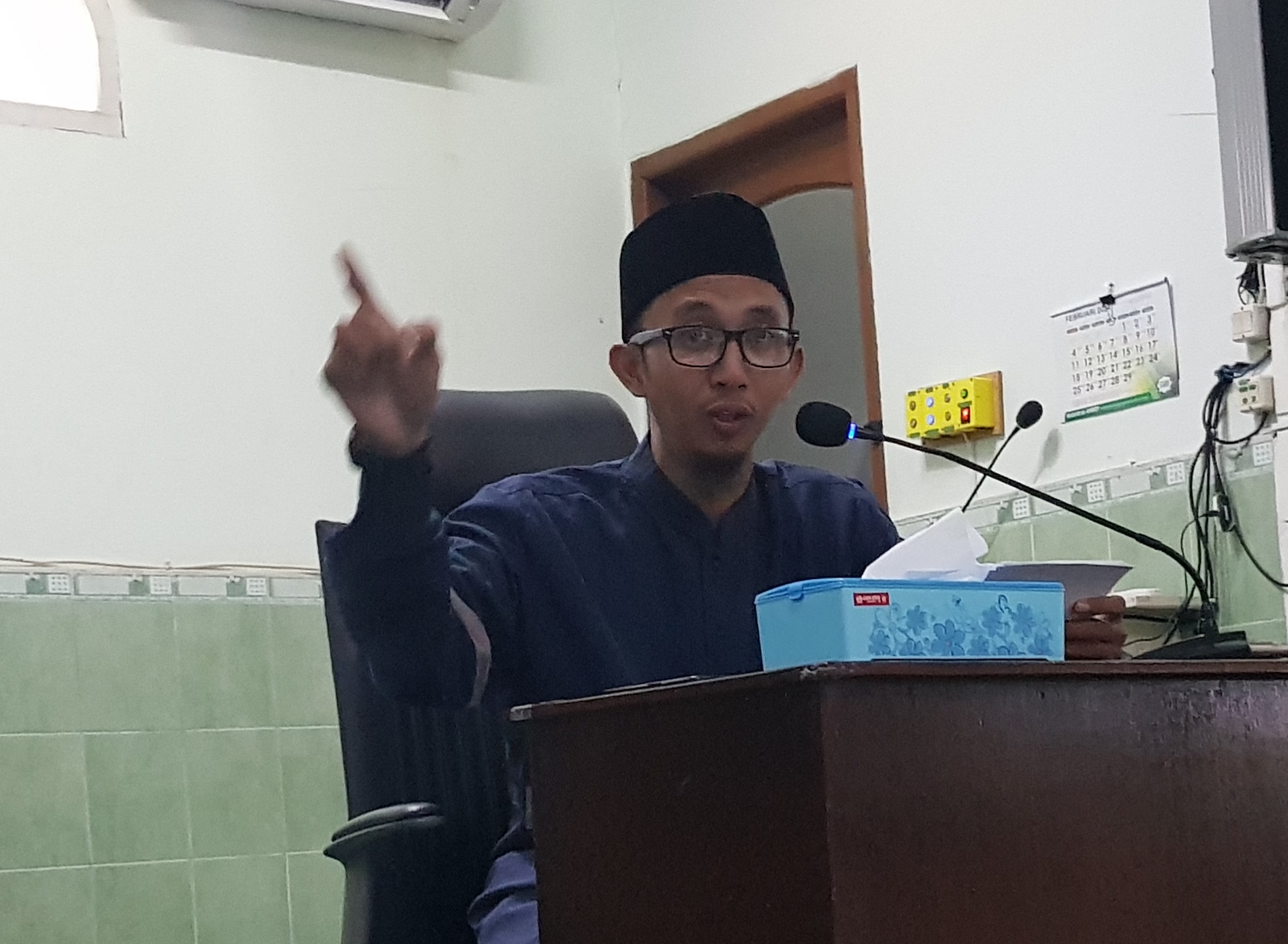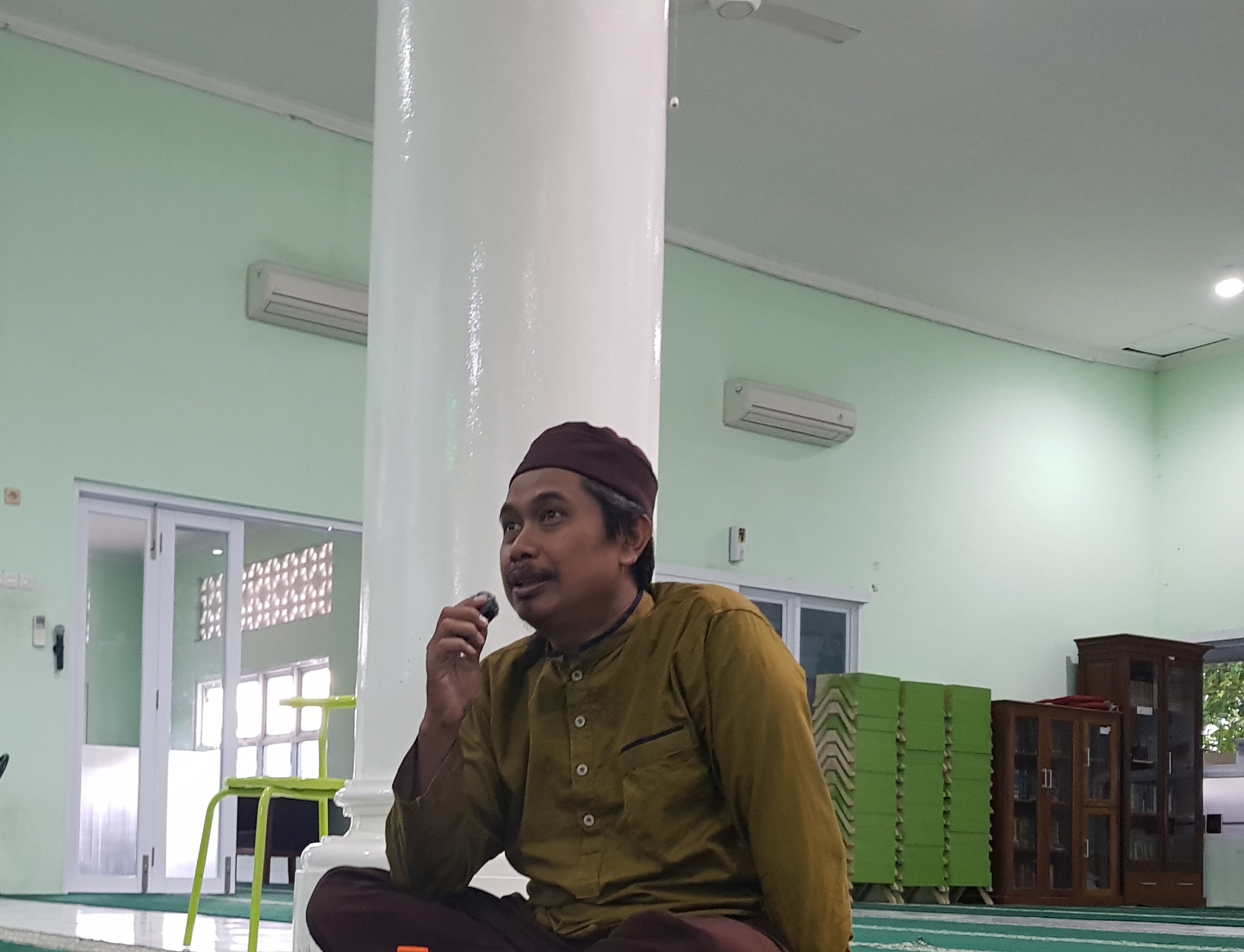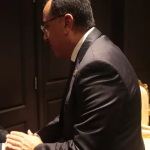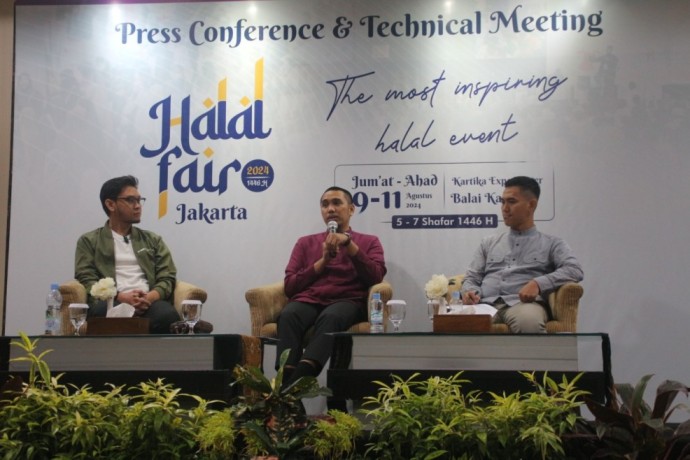Islamic study – Breadwinners must believe in Allah ﷻ before they earn living

Breadwinners should remember that their sustenance is in the ‘hands’ of Allah ﷻ (God), so there is no need to worry about it decreasing or running out.
Bogor, Jawa Barat (Indonesia Window) – Breadwinners, such as traders, employees and entrepreneurs should have principles or ethics, including belief in God or Allah ﷻ (subhanahu wa ta’ala), before they earn a living.
“Belief in Allah subhanahu wa ta’ala and knowledge (about earning a living) are among the principles before traders, employees and entrepreneurs start earning a living,” Syeikh (Ustadz) Abu Zaidan Fillah Lc, said in an Islamic scientific discourse under the theme ‘Ethics of Earning a Living to Avoid Being Exposed to Slander of Assets’, in Indonesia’s Bogor city, West Java province, Sunday (Feb. 18).
Breadwinners have to believe that Allah ﷻ is the one who provides sustenance. “This must be taken in the heart and mind so as not to fall into shirk,” Ustadz Abu Zaidan said at the discourse organized by the Indonesian Muslim Entrepreneurs Community (KPMI).
Sustenance in the form of wealth is the best gift from Allah ﷻ if it is controlled and managed by a righteous person, he emphasized, adding that this wealth would definitely be managed and used for good, such as giving alms, making sacrifices, or performing the Hajj and Umrah.
Prophet Muhammad ﷺ (peace and blessings of Allah be upon him) said: “The best wealth is that which is owned by pious people,” namely those whose faith is good, that is, they really understand how to manage their wealth.
“He or she doesn’t think much about his or her wealth as it only stays on his or her hands. It is not put into his or her heart,” he said, adding that this is the concept of wealth that is believed by pious people, namely those who believe in Allah ﷻ when they have property.
“You as breadwinners should not think about your wealth given by Allah ﷻ in your prayers, and you should pray fervently. “People who believe only in Allah ﷻ are good at managing their wealth,” the ustadz said.
Pious people spend their wealth in the way of Allah ﷻ and do not accumulate wealth and are not stingy, he added.
“Allah ﷻ says that wealth is fadlullah or a gift from Him, but on the other hand or at the same time Allah ﷻ reminds us to be prudent and careful with wealth, because not a few people can survive the slander of wealth. This slander is a test,” the ustadz noted.
He further explained, the Prophet ﷻ emphasized: “Indeed, every ummah has a test, and the test of my ummah is wealth.”
Late Al Imam Mabruri, Rahimahullah Ta’ala, stated that the meaning of the Prophet’s words is that wealth could lead to ‘misguidance’ and ‘immorality’ and this ummah is being tested by Allah ﷻ with wealth, explained the ustadz.
“This means that wealth can cause us to become careless. We no longer focus on worship, and we don’t focus when reading Al Quran because we only think about wealth and forget about the affairs of the afterlife,” he said.
In Surah Al-Fajr, verse 20, it is stated, “And you love material possessions excessively.” Added by the Prophet ﷺ: “If men were given a valley full of gold, they would certainly want a second one. If they were given a second, they would want a third.”
According to the ustadz, many people fail tests of wealth. “There are very few people who are grateful to Allah ﷻ whose blessings cannot be calculated by human calculators. So Allah ﷻ says, people who are qualified and who are grateful are few.”
Ustadz explained, when Allah ﷻ tests people with wealth, this is not only aimed at the rich, but also at the poor. “So the tests of wealth are for all humans.”
“However, many people think that if Allah ﷻ gives him a lot of wealth, it is a sign that Allah ﷻ loves him. On the contrary, some people think that if Allah ﷻ reduces their sustenance, it is a sign that Allah ﷻ is humiliating them,” said the ustadz.
Allah ﷺ gives sustenance to those He loves and those He does not love, explained the ustadz while giving the example that Allah ﷻ gave abundant wealth to Prophet Sulaiman ‘alaihi salam and Prophet David ‘alaihi salam, but Allah ﷻ also gave abundant wealth to Qorun (a man who was a very rich but very stingy and arrogant during the time of Prophet Musa alaihi salam).”
“Prophet Muhammad ﷺ was a modest figure, not very rich. That was his choice to live modestly. Some of his chums are rich and some are poor. The rich include Abu Bakr radhiallahu ‘anhu (R.A.), Umar R.A., Uthman R.A., Abdurrahman ibn Zubair R.A., Abdurrahman bin Auf R.A.,” Ustadz Abu Zaidan said.
Meanwhile, the prophet’s close companions who were poor included Ali bin Abi Talib radhiallahu ‘anhu (R’A’), Abu Hurairah R.A., and Ashabus Suffah R.A.
“They don’t look at rich friends because what is important for them is devotion and obedience to Allah ﷻ, whether they are poor or rich,” Abu Zaidan said.
The prophet ﷺ said, if someone is tested by poverty, he or she will be patient with Allah ﷻ, and when he or she gets the blessings of Him, he or she will be grateful, said the ustadz, reminding breadwinners that their sustenance is in the hands of Allah ﷻ, so it will not decrease or run out.
Ustadz gave an example of the history of ‘Aisyah radyallahu ‘anha (R.A.) after the demise of the prophet ﷺ, that her noble wife often received a sack of wheat as a gift and used it for her daily needs, and if someone came to her house, she gave alms of the wheat.
“Amazingly, the wheat never ran out, even though it was used continuously by ‘Aisyah R.A. who is generous, who prioritizes other people after the passing of the Prophet ﷺ,” the ustadz explained.
The next ethic is that breadwinners should be devoted to Allah ﷻ, Ustadz Abu Zaidan said, telling that honest traders were with the prophets, righteous people and martyrs. This honesty originates from devotion.
The prophet ﷺ said, this world belongs to four groups. The first is those to whom Allah gives knowledge and wealth, then they devote to Allah ﷻ, maintain brotherhood, and know the rights of Allah ﷻ.
“This group of people have the most important position before Allah ﷻ, because they place their wealth in a good place in the way of Allah ﷻ,” he said.
The second group is people who are given knowledge but do not obtain wealth, then those people say that if I had wealth I would do the same as what so and so does, namely giving alms, facilitating Umrah (minor hajj) to others, wanting to have groups of studying the Qur’an and memorizing the holy book for free. Because of their good intentions, they and the people in the first group receive the same rewards,” said the ustadz.
The third group is those to whom Allah ﷻ gives wealth, but not knowledge. This group will spend wealth without devotion to Allah ﷻ.
Abu Zaidan further pointed out that the fourth group is people who do not have wealth and knowledge, and those people will say, “If I had wealth, I would do the same deeds that so and so do. If I had wealth, I would want to commit sins like him.
“Because their intentions were bad, both of them were in a state of sin. And people like this are very bad,” the ustadz said.

The next ethic is to make living a means of seeking the afterlife. “Don’t be burdened by the living you give to your wife and children, because Allah ﷻ is the one who provides sustenance. Your task is to earn a halal (permissible) living, and devote only to Allah ﷻ,” he stressed
Furthermore, breadwinners should take up causes even if they are small. “When we earn a living, don’t be ashamed with something small. Make an effort even if it’s simple. “Take the cause first, let’s work first before Allah ﷻ gives us sustenance,” he remarked.
An example of endeavor is among other things in the story of Maryam R.A. who was pregnant and was ordered by Allah ﷻ to shake the date palm tree so that the ripe fruits would fall.
“What’s interesting here is that shaking a date palm tree for someone who is pregnant is an extraordinarily difficult matter and it is almost impossible to make the dates fall,” he said.
However, Allah ﷻ ordered Maryam R.A. so that she took the cause and did not many questions. “About results, Allah ﷻ is the one who gives.”
What we (breadwinners) have to pay attention to is that Allah ﷻ sometimes gives us sustenance that comes not from our efforts, but from other circumstances,” he said, while giving another example of the story of Prophet Ibrahim’s wife Hajar R.A. with Prophet Ismail AS, who is one of the sons of Prophet Ibrahim.
“The one who made efforts here and there seven times (sa’i) was Hajar R.A. to look for water and not get it. Hajar R.A. was ordered to make an effort first, and it was Allah ﷻ who gave sustenance (water) from an unexpected direction, namely from Prophet Ismail who hit his feet on the ground and water came out,” he added.
“This shows that we are only asked to make efforts first, before Allah ﷻ gives us sustenance,” Ustadz Abu Zaidan concluded.
Reporting by Indonesia Window










